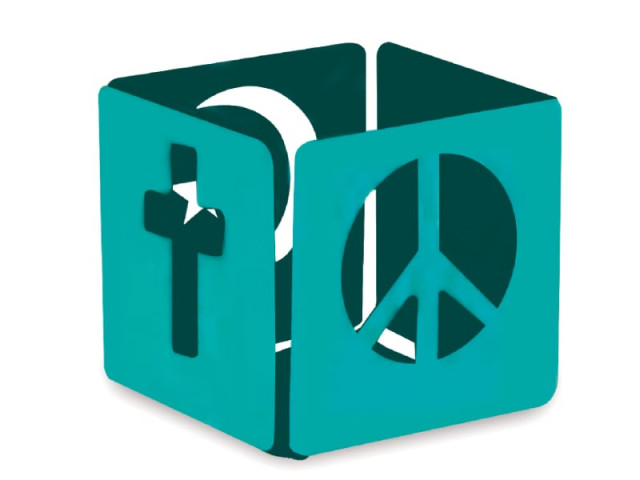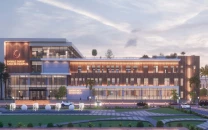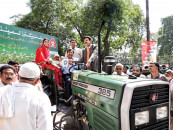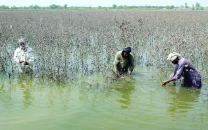Interfaith dialogue: ‘Dialogue of civilisations’ key to global harmony
Dr Akbar S Ahmed delivers lecture at FC College.

Dr Ahmed said it was vital to understand the need for a platform for interfaith dialogue in a highly polarised world. ILLUSTRATION: FAIZAAN DAWOOD
Trying to get two sides to engage in a meaningful dialogue is “like standing in the middle of the road, with people attacking you from both ends,” said author and academic Dr Akbar Salahuddin Ahmed as he discussed his efforts to raise awareness about Islam in the West, at a lecture here at Forman Christian College on Monday.
Dr Ahmed is currently the Ibn-e-Khaldoon chair of Islamic Studies at the American University in Washington and has written several books about interfaith dialogue. His lecture at Sinclair Hall, titled ‘Building bridges over troubled waters’, is part of a series on interfaith harmony being organised by the Centre for Dialogue and Action.
Dr Ahmed said it was vital to understand the need for a platform for interfaith dialogue in a highly polarised world. There were two main narratives regarding current global events in the media, he said. One described a clash of civilisations and the other a dialogue of civilisations, with the former gaining wider acceptance after the attack on America on September 11, 2001.

Ignoring geographic, ethnic and sectarian differences, he said, the clash of civilisations narrative lumped the entire Muslim world on one side against the whole of Western civilisation on the other. “So basically it comes down to Islam and the West, which I find highly simplistic and reductionist,” he added.
Dr Ahmed said that he had initiated interfaith dialogues in mosques and churches in the United States after 9/11. “There were people linking Islam to violence, terrorism and intolerance,” he said. “I simply could not be a silent spectator in this debate, either as a Muslim or as a scholar.”
Some in the US media attacked him for trying to build bridges between Islam and the West, he said, particularly ‘Islamophobes’ like Robert Spencer and Pamela Gellar who had built reputations on attacking the religion after the September 11 attacks, he said. He was called a “Muslim apologist” and criticised in some newspaper editorials.
But the general response to the dialogues he organised at mosques and churches was tremendous, he said. “People wanted to learn and people wanted to talk. The dialogue helped people connect with one another,” he said.
Dr Ahmed said the notion of knowledge was integrally linked to humanity. “In Islam great emphasis has been laid on seeking knowledge … this in turn is also vital for building bridges for interfaith dialogue,” he added.
A Formanite himself, Dr Ahmed said he was honoured to be back at the college, albeit after several decades.
Dr Amineh Hoti, the executive director of the Centre for Dialogue and Action, said citizens needed to take responsibility to create harmony in Pakistani society. “We need to begin a dialogue in order to understand the other, the gender other, the ethnic other and the religious other,” she said.
Charles Ramsay, the academic director at the centre, said education was the key to creating an atmosphere of understanding and tolerance in Pakistan.
Published in The Express Tribune, December 3rd, 2013.



















COMMENTS
Comments are moderated and generally will be posted if they are on-topic and not abusive.
For more information, please see our Comments FAQ